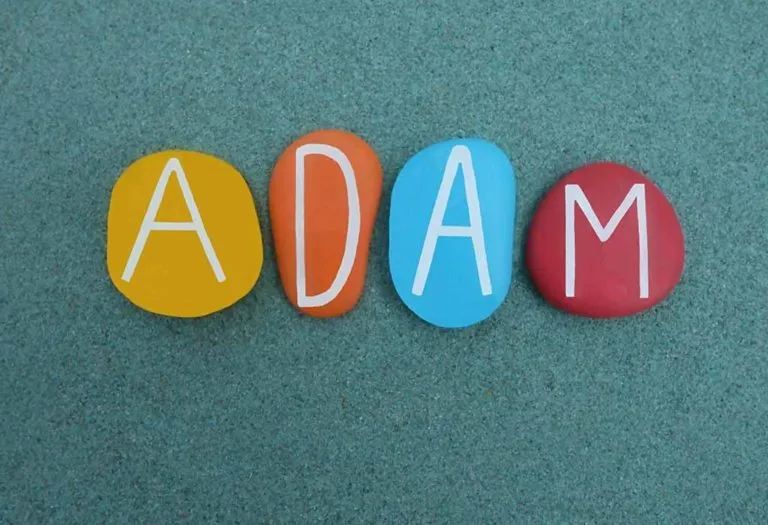190+ German Last Names or Surnames With Meanings
It’s a universal thing. Every parent in the world, regardless of species, just wants the best possible life for his or her little one (remember all those cute mother-offspring koala pictures you love on Instagram?). But animals of other species don’t necessarily require a name for identity- it is a human thing. There can be many reasons for the name you choose- they serve beyond an objective purpose.
Names are more than just words; they tell stories about where we come from and who we are. In Germany, last names have special meanings, often based on jobs, places, or personal traits. Even today, German last names hold meaning. They remind people of their family history and cultural roots. Whether passed down for generations or changed over time, these names are an important part of identity and tradition.
Popular German Surnames
Germany has for long been called Das Land der Dichter und Denker, i.e, the land of poets and thinkers. Here we bring you the choicest list of German last names for your child. Take your pick:
1. Abel
Abel is a patronymic name which means ‘noble one’. Derived from one of those old German surnames, ‘Albrecht’.
2. Aber
Aber is a German surname whose specific meaning is unclear or not commonly defined in traditional sources.
3. Abt
This is an occupational German/Dutch surname ‘abbot’. Did you know that a famous American game researcher Clark C. Abt introduced storyline gaming to the world?
4. Achen
Achen is derived from the Old High German word ach, meaning “stream” or “river,” and refers to someone who lived near a body of water.
5. Ackermann
This is a High German term meaning ‘ploughman’- it symbolises métier and fortitude through life.
6. Adelberg
Adelberg comes from Old High German adel meaning “noble” and berg meaning “mountain” or “hill,” signifying “noble mountain.”
7. Adelsberger
A habitational name, it denotes somebody from Adelsberg.
8. Altmann
Altmann is a German surname from Old High German alt meaning “old” and mann meaning “man,” denoting an “old man” or ancestor.
9. Alig
‘Adal’ in German means ‘benevolent’- the name Alig is a form of this popular German name and has been around for centuries.
10. Angert
Angert originates from the Middle High German word anger, meaning “meadow” or “pasture,” and was used for someone living near a meadow.
11. Appelhans
Named after “the one who procures fruit”, this name has a dialectic ring to it. ‘Hans’ is a popular name in Germany – Hans and Gretel, anybody?
12. Armbrecht
This name composed of the Old High German name Arn and irmin and signifies ‘greatness’ in life.
13. Arnhart
This German name is composed of the elements of ‘eagle’ it signifies the unwavering yearning to fly high.
14. Auge
This name is derived from the German word ‘ouge’- meaning eyes. It is for your little one with peculiar eyes.
15. Babler
Babler is likely an occupational or descriptive surname, possibly related to someone who talks a lot, though its exact meaning is uncertain.
16. Bach
Bach is a topographic German name – representing somebody who lives by the cool creek. Fresh and pleasant to construe.
17. Bahn
Bahn is derived from the German word Bahn, meaning “path,” “track,” or “way,” referring to someone who lived by or worked on a path or road.
18. Bahre
The name ‘Bahre’ represents something as fractious and robust as a bear- it is a symbol of wisdom.
19. Balsiger
Balsiger is probably a regional or occupational name in German, though its exact meaning is unclear and may relate to a place or craft.
20. Bamberg
Bamberg is one of those royal German last names which indicate ecclesiastic power: Bambergs were princes that reigned for almost eight centuries.
21. Bank
Bank is a German surname derived from the word for “bench” or “bank,” referring to someone who lived by a bench or a raised area of land.
22. Banner
Banner comes from the Middle High German word banner, meaning “flag” or “standard,” and likely referred to a flag bearer or standard-bearer.
23. Bartimus
This is an offshoot of the popular Aramaic-origin name Bartholomew, named after the legendary Irish apostle. Let your child saunter amongst the kindred spirits with this name.
24. Baumer
‘Baumer’ implies border in German. He is one that guards the border and heaves the spirit of his land in his bosom. ‘Baum’ is also a German nickname for somebody particularly tall.
25. Bernstein
“The bear’s stone” or “the burst stone”- this name alludes to amber, known for its longevity.
26. Buchholz
‘Buchholz’ is derived from bouche meaning “beech” and Holz, meaning “wood”.
27. Dietrich
The name ‘Dietrich’ is another form of ‘Theodorice’.
28. Dillinger
It is derived from the Old English era name Dylla, associated with ‘a hill slope’. Also remember Ed Dillinger, that enigmatic villain from Tron?
29. Dunst
Dunst symbolizes “haze” in the High German sense.
30. Eckelman
The Eckelman(s) was an upper-class German-American family that rose to prominence in the 1880s.
31. Edler
Also of variants “Edle”, “Edlem”, Edlen”, this name comes from the German adjective meaning “noble person”.
32. Eichel
Eichel in German means “acorn”. Ah, the acorn- Ice Age.
33. Eisenhardt
Eisenhardt is a name composed of the elements isen (iron), hard (signifying hardiness, bravery, physical strength).
34. Engel
This Germanic name is composed of elements of angil (the name of a prominent tribe) and beraht (meaning bright). Saint Engelbert was a 13th-century archbishop.
35. Esser
An occupational name- meaning ‘carmaker’- symbolising agility and productiveness.
36. Everhart
It is the German variant of the English name Everett.
37. Faerber
The German word for “counsel”.
38. Fassbender
A variant of the German word “Fassbinder” which means cooper. Michael Fassbender, yes.
39. Faust
Derived from the German word for fist or the Latin Faustus- refers to a strong person.
40. Fink
Or, “Finch”- meaning a dynamic and lively person.
41. Frei
Means “free” in German- an outlier that is unlike anybody.
42. Geiger
Derived from the word giga meaning fiddle, it is also a famous scientist’s name.
43. Geiss
Geiz means goat in German, somebody who is into farming.
44. Glock
From the Celtic word glocka, a topographic name for somebody who lives by the Church.
45. Gottschalk
Western Ashkenazic word for “servant of God”- with Jewish roots.
46. Guth
In the medieval period, this was a status name for a vassal or somebody of noble birth.
47. Haagen
One of those popular German surnames, it is derived from the Old Norse word Hakon meaning “family”.
48. Heinrich
Again an Ashkenazic name, Heinrich has ‘haim’ (home) and ‘ric’ (power) elements.
49. Hilde
Hild was a Nordic-German Valkyrie who conveyed fallen warriors to Valhalla- Warfare is called “Hild’s Game” in Germany.
50. Lenz
Lenz is a habitational name, denoting somebody born in the Spring season. Don’t we all love the blooms?
51. Mandel
Mandel means “almond-scented” in German.
52. Michels
German variation of the English “Michael”.
53. Neubarth
The German epithet for a settler that is new- Niu(we) ‘new’ (ge)būre ‘resident’.
54. Obermann
It’s the toponymic name for someone upper-class: ober means ‘upper’ and mann is ‘man’.
55. Odenwald
An unusual, enchanting name: it signifies somebody hailing from the mountainside. Don’t we all love the ingenious beauty that mountains have bequeathed earth with?
56. Sandel
‘Sandel’ is a popular German-American surname, meaning “the guardian of sand”.
57. Schmidt
A hard-working, expert blacksmith. Isn’t your tiny tot the (cute) quintessence of astute skill?
58. Stavinoha
This name was very popular in the Middle Ages, originating from the Slavs.
59. Ulrich
Derived from the Archaic German name Oldaric, it symbolises power and prosperity.
60. Wolff
Wolff is a German surname derived from the personal name ‘Wolfgang’ that was common in Germany during the medieval times. ‘Wolfgang’ is a combination of the German words ‘Wolf’ referring to the canine animal, and ‘ganc’, meaning battle.
Common German Last Names
Common German last names come from jobs, places, or personal traits. These names are used a lot in Germany and have simple meanings tied to everyday life. Here is a list of some well-known common German last names.
1. Adami
This is a humanistic patronym from the Biblical word Adam (using the Latin genitive). It signifies earthiness.
2. Afflerbach
‘Affal’ in High German means apple and ‘bach’ means brook. As sweet as an apple, as pleasant as a brook.
3. Altenhofen
‘Alt’ means old in German, and ‘hof’ is a farm. By the old farmstead in tranquil -this name is for your little one that loves peace.
4. Alter
Of Jewish origin, and an inflected form of the eponymous Yiddish name—the name Alter is believed to confuse the Angel of Death.
5. Aupperle
It is a variant of the famous German name Albert which has been famous for all the right reasons – nobility, intelligence, and eminence.
6. Banker
Banker is a name that patronises the German spirit of financial viability.
7. Bartel
Bartel is a shortened form of Bartholomäus, a German version of the name Bartholomew, which means “son of Talmai” or “plowman.”
8. Bauknecht
Originally meaning ‘farmhand’ in German, this name signifies versatility, dexterity, and physical suppleness. It is an exotic-sounding name that will turn many heads.
9. Bayer
Bayer means someone who comes from Bavaria, a region in Germany.
10. Betzner
This name is common in the German Rhineland which means ‘meadow’. It can also be considered a variant of the Czech word pecnář.
11. Billman
Billman likely refers to someone who used a “bill,” a type of farming or cutting tool, possibly a farmer or a soldier.
12. Candler
Candler was an occupational name for someone who made or sold candles.
13. Canter
Canter comes from the word for “singer” or “chanter,” and refers to someone who led songs or prayers in a church.
14. Dahle
A variant of Dahl, this name means “valley”. It was originally derived from the Old Norse word dair.
15. Dahm
Dahm is a short form of the German name Adam, meaning “man” or “earth.”
16. Danner
Danner may come from a place with oak trees (from “Tanne,” meaning fir tree) or refer to someone who lived near the woods.
17. Debus
Debus likely comes from a personal name or nickname, and may refer to someone cheerful or lively.
18. Decker
Decker is an occupational name for a roofer or someone who laid tiles or covered buildings.
19. Degler
Degler is a variation of “Tegeler,” meaning a maker of roof tiles or pottery.
20. Dessauer
Dessauer is an ‘industrious’, elite name, dating back to the Saxony-Asphalt regime in Germany.
21. Enders
The German word ender means ‘very rare’.
22. Erxleben
Erxleben makes for the perfect rustic name.
23. Gabel
Gabel means “fork” in German. It was likely an occupational name for someone who made or used forks or similar tools, possibly a farm or kitchen worker.
24. Garthe
In Archaic German, “Garthe” means an open yard or garden.
25. Gebhardt
Gebhardt comes from old German words meaning “gift” (geb) and “strong/brave” (hardt). It means a brave or generous person and was often used as a first name in medieval times.
26. Halderman
Halder means “slope” in High German. Off to the lofts!
27. Hardwick
Hardwick is of Old German and Anglo-Saxon origin. It means “strong settlement” or “fortified farm,” combining hard (strong) and wic (village or dwelling).
28. Harling
Harling likely comes from an old Germanic personal name or place name. It may refer to someone from a place called Harling or to the descendant of someone named Harl.
29. Hasselbach
Hasselbach is a topographic surname meaning “hazel brook” or “stream near hazel trees,” from Hassel (hazel tree) and Bach (brook/stream).
30. Hurst
A topographic High German name meaning ‘woodland’ or ‘thicket’.
31. Ingman
Ingman is a name of Germanic and Scandinavian origin. It likely means “man of Ing,” referring to the ancient Germanic god Ing or Yngvi, symbolising ancestry and heritage.
32. Iselin
Iselin is a surname of Swiss-German or Ashkenazic Jewish origin. It may come from a diminutive form of Isaac or could be linked to a place name, symbolising heritage or nobility.
33. Jonke
Jonke is a German surname derived from a diminutive of the name Johann or Jonas. It means “little John,” and reflects familial or affectionate naming traditions.
34. Juedes
Juedes is a rare German surname, likely of Low German origin. It may be derived from the personal name Julius or Judah, symbolising strength or heritage.
35. Kafer
Kafer means “beetle” in German. It might have originated as a nickname for someone with a distinctive trait or as an occupational name for someone who worked with insects or nature.
36. Kahl
Kahl means “bald” in German. It likely started as a nickname for someone with little or no hair.
37. Kalbach
Kalbach is a toponymic surname, meaning it comes from a place name. It refers to someone from Kalbach, a town in Germany, with “bach” meaning “stream.”
38. Kant
Kant may come from the Middle German word kant, meaning “edge” or “corner,” possibly referring to someone who lived on the edge of a village or field.
39. Kaplan
Kaplan is an occupational surname, meaning “chaplain” or “clergyman.” It comes from the Latin capellanus, and was often used for someone serving in a religious role.
40. Katz
Katz is a common Jewish surname derived from the Hebrew acronym Kohen Tzedek, meaning “priest of justice.” It often indicates descent from the priestly class in Jewish tradition.
41. Olle
Another form of the German name Euler. Euler was one of the greatest mathematicians that ever lived.
42. Pflug
This occupational German name denotes a ploughman—a symbol of strength and edifice.
43. Radner
The shortened version of ‘Rademacher’, it means wheelmaker or wheelwright.
44. Saal
Saal is the High German word for ‘a large chamber’ or ‘auditorium’: ‘tis for the large-hearted!
45. Voigt
Voigt or Voight is a German surname that means ‘steward’ or ‘manager or overseer of a household’ or ‘bailiff’.
Old German Surnames or Last Names
Old German surnames have been around for a very long time. They often come from old German tribes or describe jobs and places from long ago. Check out this list of German last names with interesting backgrounds.
1. Behle
Behle, a variant of the name ‘Behlen’ is a metronymic name that traces its roots to the Biblical character Elisabeth.
2. Barck
“Barck” essentially means “dweller by the birchwood”, derived from the 7th Century old English word ‘birce’.
3. Barfuss
Barfuss means ‘the one who goes barefoot’.
4. Bath
While the English version is symbolic of the legendary European city of Bath, the German version signifies the element Badu which stands for battle.
5. Crecelius
Crecelius alludes to the Greek wrestler Pankratios. A name considered to be an epithet of Christ himself.
6. Deichert
Deichert is a German surname that likely originates from a place name or topographic feature, possibly related to a “dike” or “levee” (from Deich), indicating someone who lived near a dike.
7. Dell
Dell comes from the Old English and German word meaning “small valley” or “hollow,” referring to someone who lived in or near a valley.
8. Denhart
Denhart is a Germanic name meaning “brave or hardy as a lion,” derived from Old High German elements den (possibly “valley”) and hart meaning “strong” or “hardy.”
9. Eberhardt
Eberhardt is a traditional Germanic name meaning “strong as a wild boar,” from eber meaning “boar” and hardt meaning “hardy” or “brave.”
10. Ebert
Ebert is a shortened form of Eberhardt, meaning “brave boar” or “strong as a wild boar.”
11. Eckstein
Eckstein means “cornerstone” in German, often symbolising strength and stability.
12. Edinger
Edinger is a toponymic German surname referring to someone from a place called Edingen or a similar name.
13. Eggemann
Eggemann is a German surname likely derived from a personal name or place name, with Egge meaning “edge” or “ridge” and mann meaning “man.”
14. Eichmann
Eichmann comes from the German word Eiche, meaning “oak,” symbolising strength, and mann meaning “man,” thus “man of the oak” or someone who lived by oak trees.
15. Eidman
Eidman is a German surname derived from eid, meaning “oath,” indicating a person who has sworn an oath or was bound by a promise.
16. Eilberts
An ancient Germanic name, Eilberts signifies royalty. Other forms of the name are ‘Achard’ (Old Norman) and Eckhart.
17. Fabrizius
A variant of Fabricius, which is derived from the Latin “Faber” meaning ingenious.
18. Fahle
Fahle is the German word for “striking”.
19. Geller
An occupational surname for a “shrill town crier”. We also know two famous New Yorkers who have this surname.
20. Hauth
Of Anglo-Saxon origin, one of the imperial German family names, it means “heath”, land with peaty humus.
21. Hehl
A name implying “secret” (from Hele, meaning concealed or remote). Shhh, that’s all we can tell you!
22. Kalmer
A family surname from the Thuringian (Eastern) German dialect meaning “yellowhammer” or “Goldammer”.
23. Margraf
This name comes from the German word ‘margrave’ which signifies “a royal judge”.
24. Nipp
Derived from the High German word that literally means “keen eyesight and hearing”. Your child is a paragon of alertness and discernment.
25. Oertel
The pet form of the German names Ortolf or Ortwin.
26. Schalk
The court jester or the knave was called ‘Schalk’ in Old Germany.
27. Stophel
The reduced German form of the English name Christopher.
28. Stroh
A name from High German word strō, one with straw-coloured hair.
29. Trester
The German word relating to fermentation or brewing of beer.
30. Walberg
A variant of ‘Walhberg’. Means ‘mountain’ in High German.
Unique German Last Names
Unique German last names are special because they are not very common. They might come from unusual jobs or rare places. Below is a list of some unique Germanic surnames that are different and interesting.
1. Alpha
Alpha, a name signifying new beginnings is a Hellenisation (‘Germanising’) of the first Greek letter.
2. Balk
This name is the Slavic equivalent of the Dutch name Valentinus, symbolic of physical prowess, agility, and endurance.
3. Balsam
‘As fragrant as a Balsam’; this ornamental name is derived from the Yiddish word balsam (balm).
4. Banning
The name Banning traces its origins back to the Anglo-Saxon tribes of Britain. ‘Banning’ signifies a courageous warrior, the slayer of men in battle.
5. Dombrow
Dombrow signifies “brightness”. Let your child be the adorable goofball of glee.
6. Eben
This patronymic name of Hebrew origin means “stone of help”.
7. Eiker
Eiker is a German surname likely derived from a place name or related to the word Eiche meaning “oak,” symbolising strength and endurance.
8. Eisenberg
Eisenberg means “iron mountain” in German, referring to someone who lived near or worked at a mountain rich in iron.
9. Eisenhauer
Eisenhauer means “iron cutter” or “iron hewer,” an occupational name for someone who worked as a miner or metalworker.
10. Esther
Esther is a biblical name of Persian origin meaning “star,” widely adopted in German-speaking countries.
11. Eulberg
Eulberg likely originates from a place name and combines Eul (related to “owl”) and berg meaning “mountain,” symbolizing wisdom and strength.
12. Eyer
Eyer is a German surname that may come from the word Eier meaning “eggs,” or from a place name, possibly indicating a farmer or someone involved in poultry.
13. Fackler
Fackler is a German occupational surname meaning “torchbearer” or “one who carries a torch,” symbolising illumination and guidance.
14. Fahrer
Fahrer means “driver” in German, an occupational name for someone who drove wagons, carriages, or other vehicles.
15. Falkner
Falkner means “falconer,” an occupational name for someone who trained or hunted with falcons.
16. Funke
Funke means “spark” in German, symbolising liveliness, inspiration, or the beginning of something new.
17. Gabe
This refers to the Hebrew name Gabriel which evokes God’s strength.
18. Ganschow
This is one of those common German last names where a ward is identified by the region of Germany he is from here, Mecklenburg.
19. Garven
The German version of the English name Garvin, “Garven” means “one who wields the spear”.
20. Jenner
In Hebrew, Jenner means “God’s Grace”.
21. Kelting
Kelting in North German dialect means “field”.
22. Knick
A metonymic occupational name for someone in a knick (hedge, or boundary). Your child can be the grass-angel!
23. Nix
Nix is the Middle High German term for ‘water sprite’—bring out the water-bender!
24. Panther
A contracted form of Pfander, a distinguished sign of the leopard.
25. Pastorius
It is the Latinized humanistic form of Schafer, meaning ‘shepherd’.
26. Rahman
The German variant of ‘Rahmann’ deriving from rade meaning ‘a clearing amidst the forest’: a revelation, a light amidst the sombre of the world.
27. Scheider
Scheider signifies somebody that helps those in need. Let your child stand for the benevolence only human beings can be proud of!
28. Supple
Archaic German for ‘cooking soup or broth’. The sumptuousness of this name will always be ineffaceable.
29. Tannenbaum
The German word for a fir or pine tree.
30. Unruh
The name for your restless, hyperactive baby! From the word Unrouwe (‘unrest’).
Rare German Surnames
Rare German surnames are not seen very often today. They usually come from small areas or special family stories. Look at this list of rare German last names that show the variety of German history.
1. Fitz
An Anglo-Norman word meaning “the offspring”.
2. Majer
A toponymic name for somebody from Machern in Germany means “major”.
3. Reddix
The Latinized form of ‘Rettig’ or ‘Reddick’- denoting blazon, fieriness in any task he gets his hands on.
4. Rink
The High German word for ‘buckle’- clasp ‘em tight!
5. Sage
The habitational name for people from Oldenburg. ‘Sege’ means reed or sedge- a stalk of astuteness and perception.
6. Schlei
‘Schlei’ is German for fisherman. Bring out the aquatic!
7. Semachiah
It is a reference to the eponymous Biblical character.
8. Stadler
This name symbolizes tardiness and vivacity.
9. Stahr
Stahr makes for an upper class, complex, name that your child will surely be proud of.
10. Stauffacher
A child as guileless as the river: derived from Stoufahe, meaning ‘river’.
11. Sterling
In Medival Germany, Sterling was the name of a coin.
12. Stern
Of Ashkenazic origin, Stern is an ornamental Jewish name referring to a star.
13. Stiller
Signifies an individual of calmness and composure.
14. Sulzer
A topographic German name for brine.
15. Sussman
Sussman is ‘a sweet man!’ Literally.
16. Synder
From ‘Sunder’, meaning ‘wooded area of land’; can also imply distinctiveness.
17. Taucher
The South German dialectic name for Dauch- a wetland/swamp.
18. Teller
The Jewish occupational name for a market official. Yiddish for ‘a plate’.
19. Tess
The German word for “the essence of something”.
20. Toelke
This name is a variant of Tolk, an Old Slavic name meaning ‘to soothe’.
21. Tripp
It comes from trippe, the German word for wooden patterns or cogs.
22. Ufer
The name originates from High German, meaning ‘water shore’.
23. Uhlhorn
The toponymic name for someone living by the Hunte river.
24. Utzig
A patronymic German name for the Utz region dweller.
25. Vasel
‘Vasel’ means ‘one of several offsprings’.
26. Velte
Velte is a variant of the German surname Velten, which is related to the name Valentin. It is a patronymic name, meaning it was originally used to identify the “son of Valentin.”
27. Viel
‘Vil’ means quagmire in High German. A toponymic name.
28. Voelker
This is a combination of the German words for army or folk. Signifies the ‘people’s guardian’.
29. Wirth
‘Wirth’ is the German name for one who takes care of the household.
30. Zipf
‘Pont’, ‘tip’, or ‘corner’- on point for your child to be the go-getter!
Origin of German Last Names
German last names often come from four main sources: jobs (like “Schmidt” for blacksmith), places (like “Bach” meaning stream), personal traits (like “Klein” for small), or family names (like “Peters” meaning son of Peter). Many of these names began in the Middle Ages when people needed surnames to tell each other apart. These last names tell a lot about a person’s roots and family history.
FAQs
1. Are there gender-specific German surnames?
No, unlike some languages, German surnames are typically gender-neutral. Both males and females in a family carry the same last name, though women may change it after marriage.
2. What is the importance of studying German surnames?
Studying German surnames can reveal insights into family history, cultural background, and migration patterns. It helps people connect with their heritage and understand where their ancestors came from.
3. Can German surnames be Jewish?
Yes, many German surnames are of Jewish origin or have been adopted by Jewish families, often with special meanings or symbolic significance like Stern (star) or Kaplan (chaplain).
Dale Carnegie said, “A person’s name is to him or her the sweetest and most important sound in any language.” – and we couldn’t agree more.
The name you bestow upon your little one shall shape his/her identity for life, dictate their environment- starting from the way they’re treated at pre-school to the power they command at work.Zero in on the best German-surname for your child.
Also Read:
Medieval Last Names
British (English) Last Names
Roman Last Names or Surnames
Southern Last Names or Surnames
Canadian Last Names with Meanings
Was This Article Helpful?
Parenting is a huge responsibility, for you as a caregiver, but also for us as a parenting content platform. We understand that and take our responsibility of creating credible content seriously. FirstCry Parenting articles are written and published only after extensive research using factually sound references to deliver quality content that is accurate, validated by experts, and completely reliable. To understand how we go about creating content that is credible, read our editorial policy here.













.svg)


















